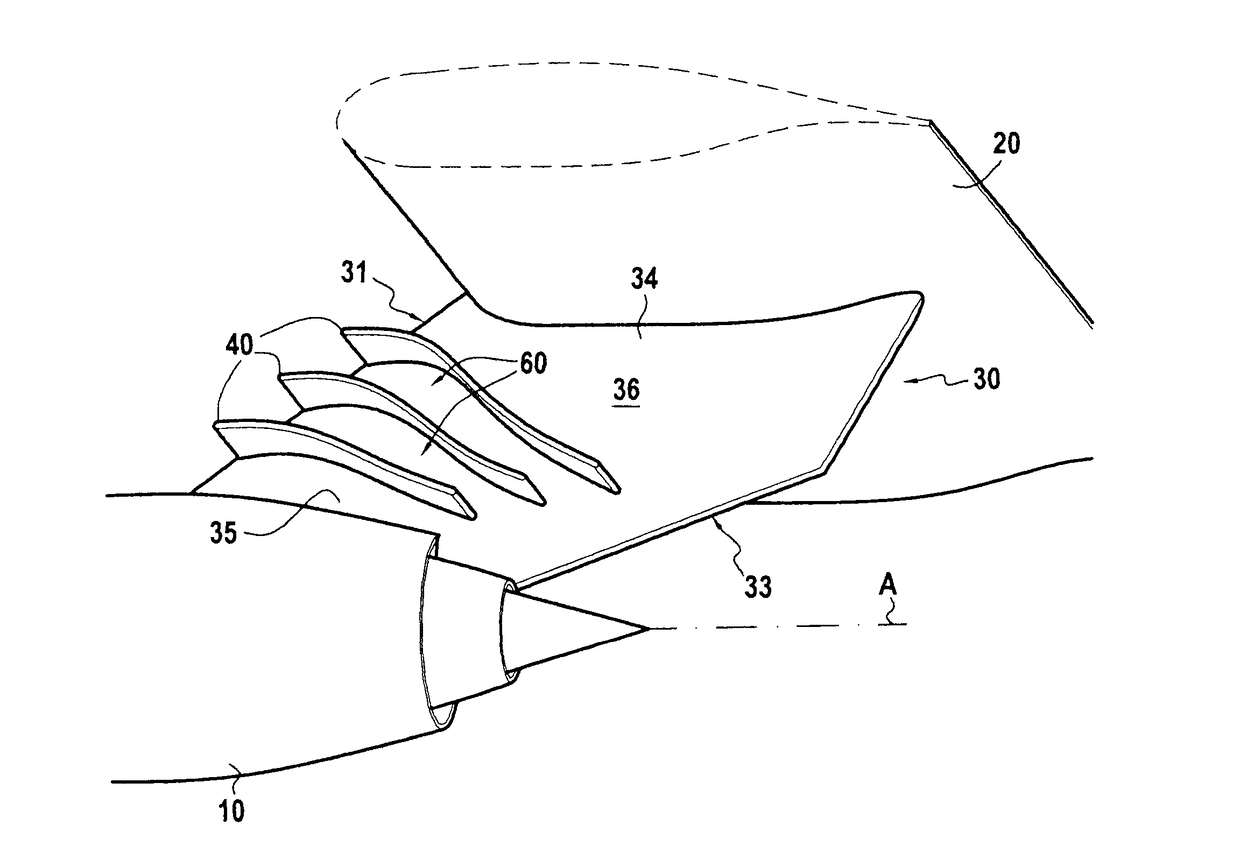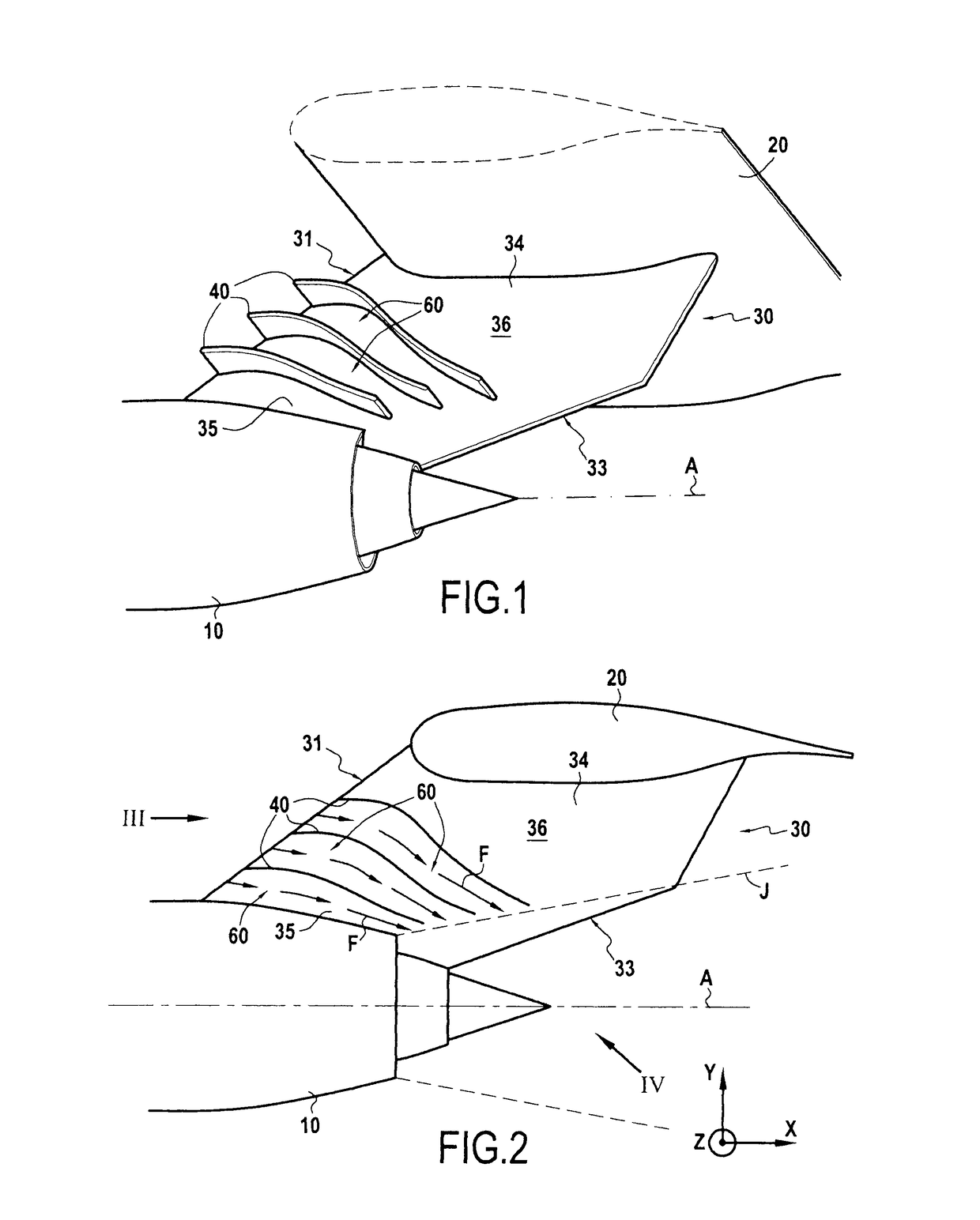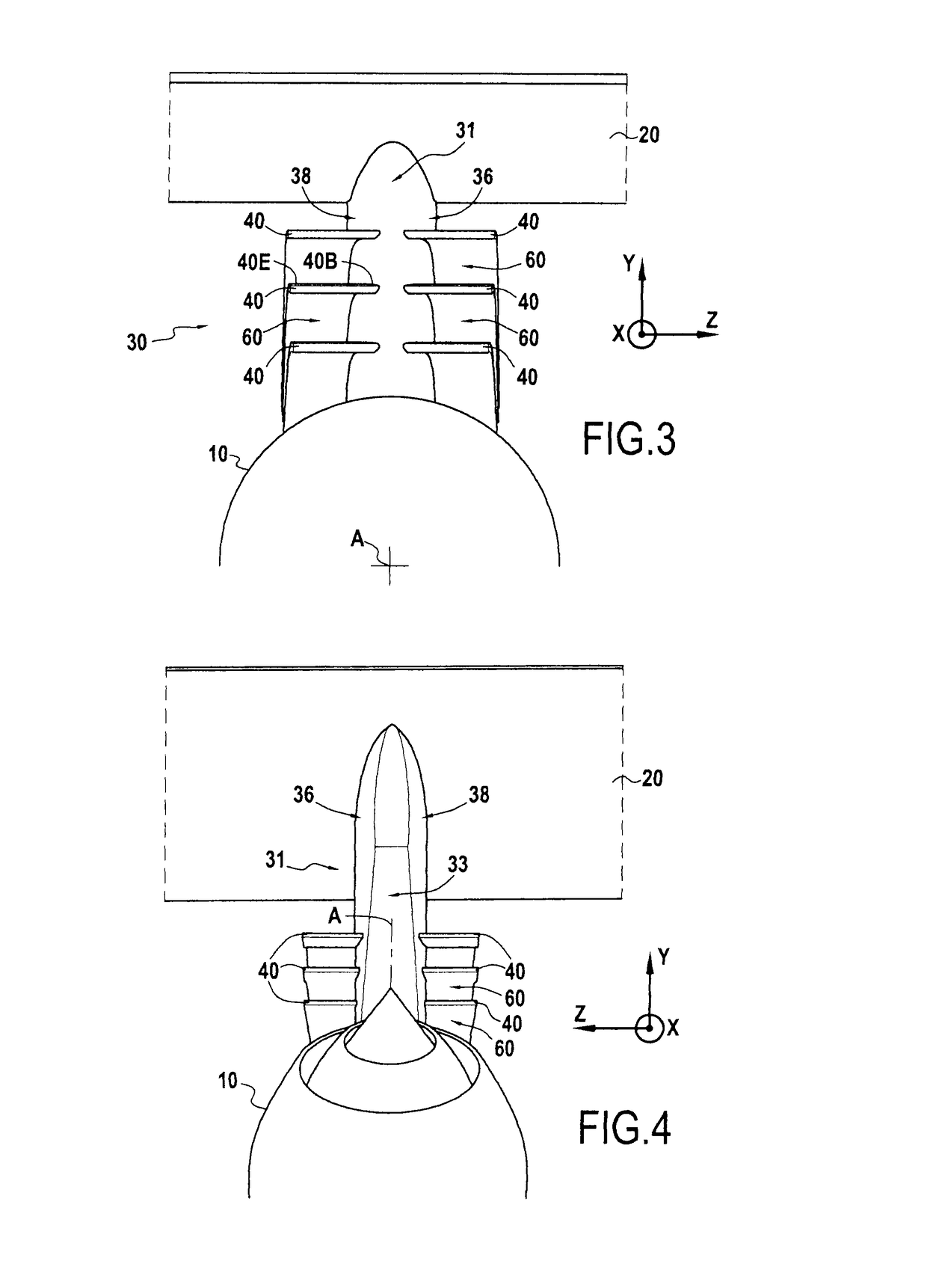Attachment pylon for a turbine engine
a technology of turbine engines and pylons, which is applied in the direction of machines/engines, air-flow influencers, transportation and packaging, etc., can solve the problems of increasing bpr, difficult to continue on those lines, and drawbacks in integrating engines on airplanes, so as to reduce the interaction between the jet and the wing, increase the flow speed, and reduce the pocket of turbulent kinetic energy
- Summary
- Abstract
- Description
- Claims
- Application Information
AI Technical Summary
Benefits of technology
Problems solved by technology
Method used
Image
Examples
Embodiment Construction
[0040]Embodiments are described below in detail with reference to the accompanying drawings. These embodiments show the characteristics and the advantages of the invention. It should nevertheless be recalled that the invention is not limited to these embodiments. In particular, although the invention is described below in the context of its application to a turbojet (of the bypass type having two separate streams) that is fastened under an airplane wing, the invention is not limited to this application.
[0041]FIGS. 1 to 4 show a turbojet 10 fastened under an airplane wing 20 by means of an attachment pylon 30. The drive axis A of the turbojet 10 is drawn in chain-dotted lines in the figures.
[0042]The pylon 30 has a streamlined profile defined by two opposite faces 36 and 38 and it extends longitudinally (i.e. parallel to the drive axis A) between a leading edge 31 and a trailing edge 33. The pylon 30 is defined transversely between a distal end 35 fastened to the turbojet 10 and a pr...
PUM
 Login to View More
Login to View More Abstract
Description
Claims
Application Information
 Login to View More
Login to View More - R&D
- Intellectual Property
- Life Sciences
- Materials
- Tech Scout
- Unparalleled Data Quality
- Higher Quality Content
- 60% Fewer Hallucinations
Browse by: Latest US Patents, China's latest patents, Technical Efficacy Thesaurus, Application Domain, Technology Topic, Popular Technical Reports.
© 2025 PatSnap. All rights reserved.Legal|Privacy policy|Modern Slavery Act Transparency Statement|Sitemap|About US| Contact US: help@patsnap.com



